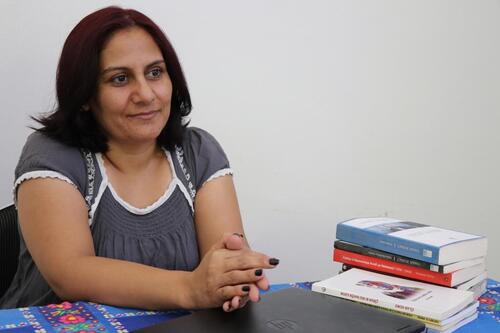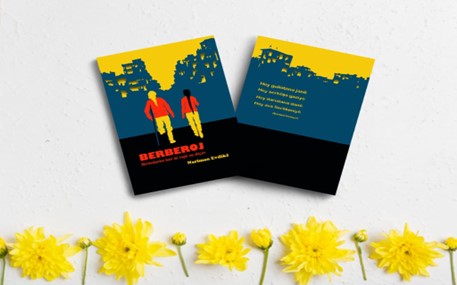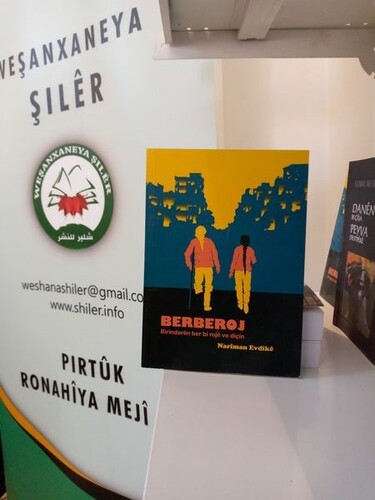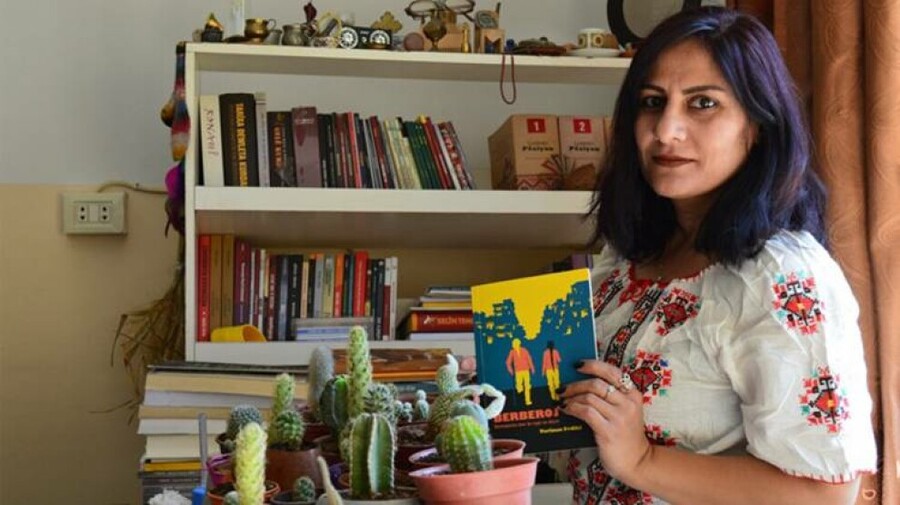Aras Hasso
Who is Nariman Avadke?
The novelist "Nariman Avadke" was born on April 4, 1988, in Sarekani city. She finished her elementary, secondary, and high school education in this city. Later, she studied Arabic Literature at Firat University but she could not receive her degree due to the situation the war had caused.
She went to the northern part of Kurdistan due to war and her family's situation and lived in Amad for four years. She has studied literature and language in the Cultural Academia of Jigar Xwen and has received her degree.
Before that, she had studied for a kindergarten school in the "Kurdidar" center and had received her degree too. She has also published some of her works in "Rawshan" and "W" magazines.
After finishing her education, she returned to Sarekani and began her work in the Kurdish literature field. Right now, she is a member of the Literary Committee in the Western part of Kurdistan publishing many works in Literature and literary research fields.
She has written many stories, some of which are published in relevant books and some of them published in magazines. Nariman Avadke has received several prizes for her works, one of which is the second festival of "Sh. Vian Amara" prize in Kobane and the second festival of "Apo Osman Sabri" in Qamishlo.

War and writing experiences
In 2012, the dark army of "Al Nosra" invaded Sarekani and the brave Kurdish warriors resisted this attack and liberated this city heroically. The Barbaroj book (The Wounded Victims Will Go Towards the Sun) talks about the heroic acts of the warrior of Sarekani who faced the enemy and got wounded severely. It talks about the days when the warriors were resisting the enemy's attacks bravely and some of them gave up their lives in order to gain liberty. It talks about those combatants who lost their legs, feet, eyes, or other parts of their bodies fighting for freedom and a happy life for the Kurdish children.
Nariman Avadke visited the heroes and wounded soldiers of Sarekani and described everything from their point of view in literary language. She has devoted her book to all the martyrs of freedom and their mothers and children of Sarekani at the preface of her book. This book was published in 2019 by the Literary Committee of the Western part of Kurdistan in Qamishlo. In the preface of her book, she also wrote:
"I did not see the fighting and resistance of the hero people of Sarekani and this will always remain one of my regrets. When I returned to my city, I saw freedom and liberation but the victims of this liberation could be found in every house. I had to fulfill my duty and write about my city's heroes for future generations."
(…)

"Although I did not witness the war, the interviews and stories I have written in my book have made me understand and see every minute of the war."
Nariman Avadke has chosen the title of "Barbaroj" for her book. In this book's content, one can see that children can see the sun because of the bravery of those warriors who had protected this city and some of them have died in this way, and those who could not see the sun have gone towards it. In addition to this, she has chosen nine heroes in her book as her book's subjects. She has written the story of each of these warriors in a simple Kurmanji with literary and artistic language. There is also a beautiful picture in this work painted by "Antare Shawo" which is very relaxing for the readers.

What is the book about?
As its title suggests, Barbaroj is the story of all those warriors and one of the heroes is a wounded man named "Saifo Barazi". The story goes like this: "I always had a gun, but I never had thought about fighting with it."
(…)
"One day we were going towards Frisa Village to see one of our coworkers there. I was driving. The enemy had put mines in our path which exploded. My friends were martyred right there. My wound stayed with me this time and never left me. One of my eyes cannot see well and one of my ears does not hear at all. I returned to war after a few days and I saw Gre Spi's liberation with one eye.
I had a friend in Kobane. His name was Wilat. He was fighting in Kobane and I was fighting in Sarekani. We promised each other not to get killed and we would shake each other's hands in Gre Spi and we did so."
This book narrates every wounded warrior's story.









